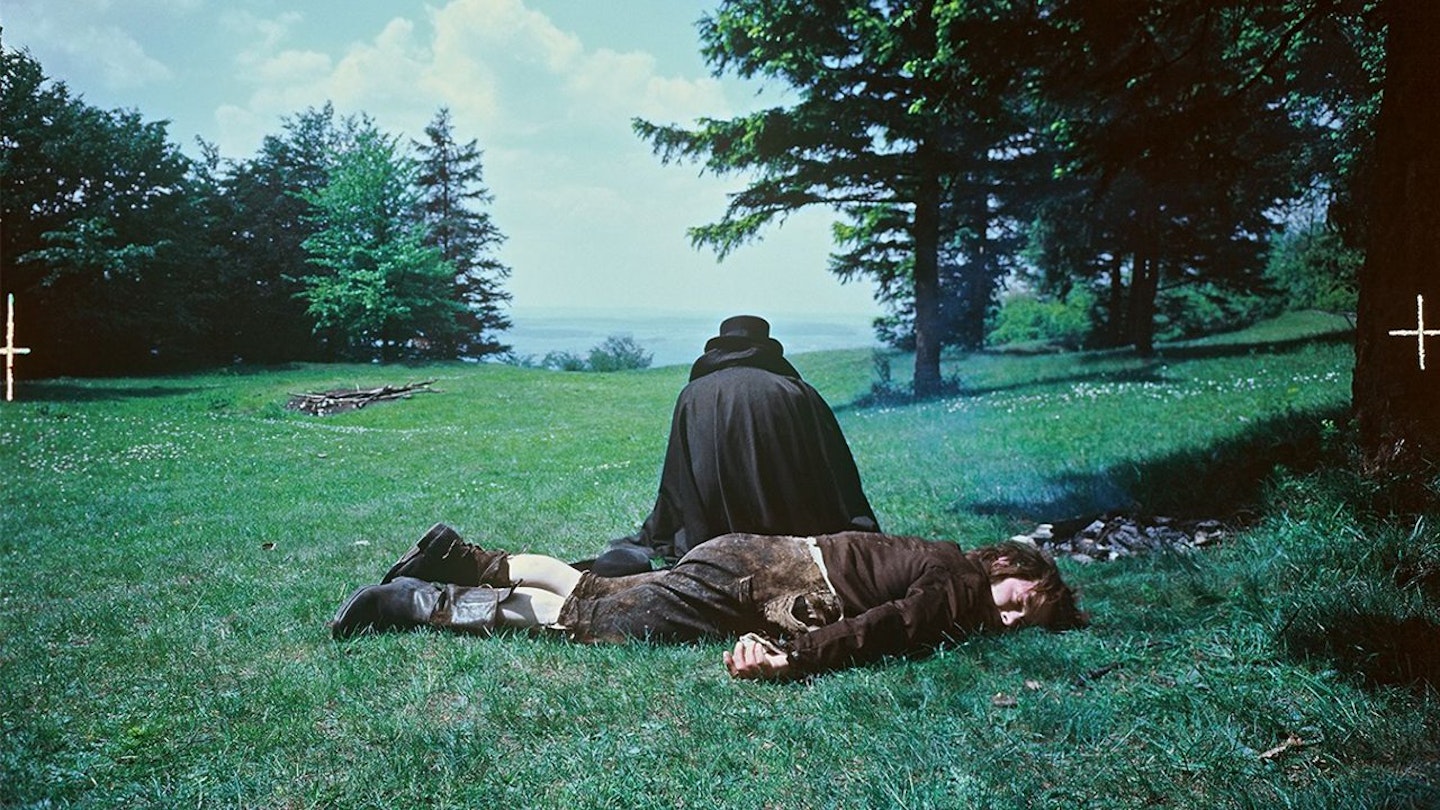Originally entitled 'Every Man For Himself And God Against All', this terrific movie from Werner Herzog’s golden period in the 1970s is deliberately-paced, perfectly played and as moving as it is thought-provoking.
Based on a famous German case history from the 1800s, this follows Kaspar Hauser, a strange youth who appears in a small town one day, having been raised in a solitary cellar away from all other human beings, holding a mysterious letter which gives clues but no explanations, never having been taught to walk, speak (aside from the sentence ‘I want to be a gallant rider, as my father was before me’), eat anything but bread or understand basic concepts like inside and outside and why cats don’t walk upright.
Bruno Schleinstein, a real‑life schizophrenic street musician impressed to star in the film, is extraordinary as the wild-eyed, well-intentioned Kaspar whose unique background gives him a fresh, delightful, childishly wise viewpoint. Herzog examines the interaction of the odd innocent on the kindly or cruel people who look after him or exploit him, but always focuses on how Kaspar feels and thinks, creating a truly disorienting vision (even showing his dreams in flickering 8mm inserts).
Priceless moment: Kaspar's answer to the age‑old schoolbook conundrum, put to him by a long-nosed and humourless logician, about how to discern the villager who always tells the truth from the villager who always lies (‘I would ask him “are you a tree-frog?”’).
